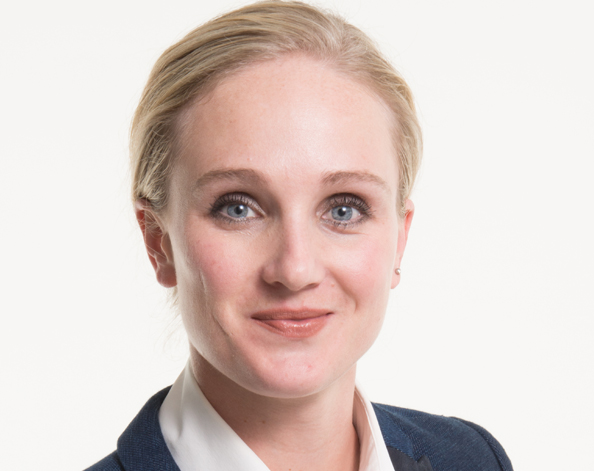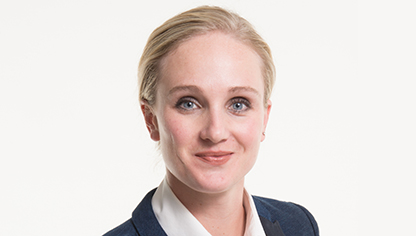Receive Focus insights straight to your inbox
Simplicity is the art of creating clarity by keeping things straightforward, easily understood and easily explained – as opposed to making matters complex and difficult to navigate.
Simplicity and tax, therefore, make unusual bedfellows! "The hardest thing in the world to understand is income tax." Should you agree, you're in good company: the quote is attributed to the great Albert Einstein, no stranger to the complexities of theoretical physics.
Simplicity is difficult to pin down in our shrinking, ever-changing and complex world, but we have noticed a shift towards simplicity in the tax world, driven by globalisation.
I was recently reminded of this when leaving Cape Town International Airport recently, after having collected my luggage. As I made my way down the long passage, plastered with adverts on either side, one, in particular, caught my eye. It read: "100% of people like paying 0% of tax." I chuckled as I reflected on how true this statement was.
As tax practitioners, we have lost count of the number of times we have heard the million-dollar question: "How can I reduce my tax liability?" We are yet to meet anyone who looks forward to paying their tax bill. Obviously, everyone wants to arrange their affairs in the most tax-efficient manner, but attempts to achieve a zero percent tax bill have landed many people in hot water.
An all-too-familiar conversation begins with the story about a 'friend' who has a complex offshore structure in place, set up in 'the good old days'. Too many people still rely on offshore banking secrecy and complex structures to keep their financial affairs beyond the reach of tax authorities. However, the world and its tax legislation continue to merge into a complex global network. The net is closing.
READ MORE: How to take your assets offshore

The implementation of the Common Reporting Standard means that SARS will, more than likely, discover any undeclared offshore funds, whether they are held in complex structures or not.
About FATCA and the CRS
We all know that there is nothing quite like outstanding taxes to get countries to cooperate eagerly with each other. Indeed, the once-sacred principle of banking secrecy has come to an end, thanks to the US’s Foreign Account Tax Compliance Act (FATCA) and a FATCA-like regulation drawn up by the Organisation for Economic Cooperation and Development (OECD), known as the Common Reporting Standard (CRS).
FATCA forces non-US financial institutions (among them banks, investment managers and even trusts) to report to the IRS – the US revenue service – on US citizen account holders.
The CRS is a global copycat of FATCA. It requires automatic reporting between countries on a mutually beneficial basis: "You show me yours and I will show you mine."
The implementation of the CRS means that the South African Revenue Service (SARS) will, more than likely, discover any undeclared offshore funds, whether they are held in complex structures or not. They now automatically gain access to financial information relating to South African tax residents’ offshore dealings and their offshore structures.
The CRS has been adopted by most major jurisdictions, including SA, and forces financial institutions to agree to an automatic exchange of information. There are very few places left to hide, which should trigger people with offshore interests to undertake a full review of their offshore structure.
A question of trusts
"Should I keep my structure?"
"What is it costing me?"
"What are the benefits of the structure, tax or otherwise?"
These are the right questions to be asking and, in light of the CRS and FATCA, these are questions one can no longer afford to ignore. Furthermore, these questions should not be limited to offshore structures. Many of our clients have trusts and foundations both locally and abroad. There have been a number of changes to the legislation regarding taxation of trusts recently, which prompts the question: "Should I keep my trust?"
Trusts originated in the 12th century during the Crusades. Crusading English knights left their estates in the care of trusted friends for safekeeping while they were away.
Today, the concept of a trust has not changed much. Assets are given to a trustee to administer on behalf of, and for, the benefit of the beneficiaries of the trust. However, the simplicity of the original concept is now a far cry from the complexity currently involved in the running of a trust, locally and abroad.
On the tax front, trusts already face a number of attacks from SARS, with murmurings of more to come. Even so, trusts can still be tax efficient, especially abroad, despite many tax benefits having been whittled away over the years. Although trusts continue to get bad press, tax aside, they still fulfil an important function in society.
I once heard the following quote: "I want to leave my children enough money so that they can do anything, but not so much that they do nothing."
Trusts can be a useful succession planning tool to protect beneficiaries – even against themselves, if necessary. They allow the founder of the trust to build core values and principles into the trust documents. These values and principles continue to live on, even when the founder is no longer around.
So, "Should I keep my trust?" may seem like a simple question, but in order to respond, one needs to navigate through a number of tax implications and then weigh them up against the commercial as well as emotional rationale for having a trust, which includes the significant benefit of the preservation of family wealth.
People should not only review their structures, but should also to ask the same questions about assets held in their own names, whether situated locally or abroad.
Many decide to take their money out of the country, investing in a nest egg offshore. However, it isn't only funds that are leaving the country. If I think of my closest friends and family, at least 60% of them currently live and work abroad. Family units are becoming more international and complex. We refer to our clients as 'citizens of the world'. Where family members reside, and where assets are situated, significantly affects how best to preserve family wealth.
Planning for the inevitable

We all know that nothing, except death and taxes, is certain. Preservation of family wealth must include planning, however unpleasant, around the inevitable. A proper wealth and succession plan to ensure the preservation of family wealth is becoming a more complex task and we must all begin to think and act as citizens of the world.
Global tax and succession laws play an ever-increasing role, especially since the cementing of international cooperation between tax authorities under FATCA and the CRS. When planning an estate in this new world, apart from local considerations, one must also consider the effect of beneficiaries living abroad on existing structures and assets, the impact of international tax laws, exchange control restrictions, how best to deal with global assets in a will, and last but not least, the impact of inheritance tax.
There lurks in the world of inheritance tax a dreaded word, 'situs', which is Latin for 'position' or 'site'. Not commonly known is the fact that when one dies, both the UK and the US levy an estate duty on situs assets, ie certain assets physically situated within their jurisdiction, whether or not one is resident there. Situs tax is levied in both the UK and the US, subject to certain exemptions and thresholds, at 40%.
READ MORE: Death and taxes – Situs explained
Even when it comes to one's last wishes, matters have become more complicated. Our global citizens often ask if they should have a separate will for their offshore assets and if they really need to complicate things even further. It is possible to have a single will dealing with one's worldwide estate.
However, each country has its own laws and procedures that must be taken into account when wrapping up an estate. This often leads to administrative difficulties and lengthy delays. If you have a separate will for your offshore assets, your offshore estate would, in essence, be wrapped up independently from your South African estate, thus saving your estate time and money.
READ MORE: Conversations are key to preserving wealth through the generations
A will is an instrument used to determine how your assets will be passed on to the next generation once you are no longer around to orchestrate affairs. It is imperative that you carefully consider how to structure your will because it is the masterpiece in your estate planning puzzle.
Five factors to consider when planning your estate
As evidenced, estate planning is complex. The wealth owner is not only expected to understand how international tax systems work, but must also keep up to date when they change. When formulating an estate plan, you must take cognisance of many factors, including the following:
- A new, globally transparent tax regime triggered by FATCA and the CRS
- Are current structures worth perpetuating in light of recent changes in tax legislation?
- International tax, especially inheritance tax legislation
- Family members/beneficiaries who reside abroad
- Formulating a will dealing with global assets.
In the past, unnecessarily complicated and often secretive structures were thought to be the goose that would lay a golden 0% tax egg. This is no longer the case.
Formulating a master plan in order to preserve your family wealth can feel like navigating a minefield, particularly in an increasingly complex world. The solution may lie in keeping structures simple.
As Leonardo da Vinci said: "Simplicity is the ultimate sophistication."
About the author

Elizabeth Fick
Joint-head, Investec Tax & Fiduciary
Lizzie is an admitted attorney, currently busy with her Masters in Taxation. She specialises in tax and cross-border planning and structuring. Lizzie has vast experience in the drafting of local and offshore wills, estate and succession planning, trust and company law, local and offshore trust and company administration, exchange control regulations, tax law and opinions, as well as cross-border structuring and planning. Before joining Investec, Lizzie worked as an associate at a global law firm specialising in tax and cross-border planning, and as a Client Relationship Manager in trust and fiduciary services.




